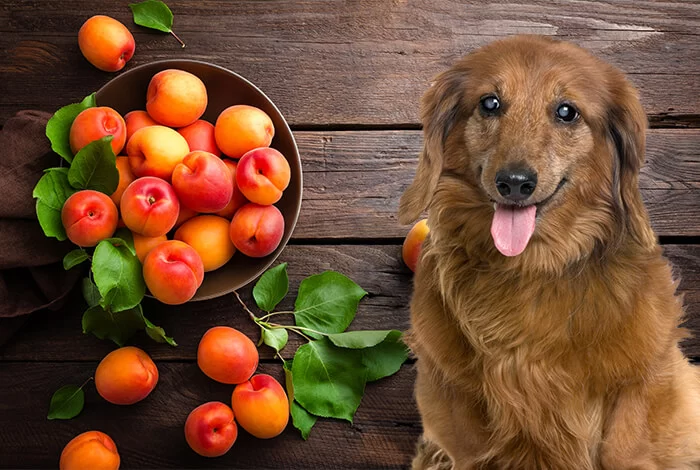Can Dogs Eat Dried Apricots? What Every Dog Owner Needs to Know
If you're a dog owner, you might be tempted to share your snacks with your furry friend. After all, dogs love to be part of the family and enjoy tasty treats. But sometimes, a seemingly harmless food item like dried apricots can raise a few concerns. I had a close call when I accidentally dropped a dried apricot in front of my dog, Bella, who immediately pounced on it. This made me wonder: can dogs eat dried apricots? After some research and advice from our vet, I learned that while apricots might be okay in small amounts, there are potential risks involved. Let's explore this in more detail.
The Safety of Dried Apricots for Dogs
As a dog parent, I’ve always been cautious about what Bella consumes. It’s easy to assume that since apricots are a natural fruit, they must be healthy for dogs. However, the truth is more complex than that. Dried apricots may not be as harmless as they seem, and it's important to understand both the benefits and risks of feeding them to dogs.
1. What Makes Dried Apricots Different?
Fresh apricots are delicious and nutritious for humans, offering a good source of vitamins, fiber, and antioxidants. But drying them changes the composition, concentrating sugars and other substances. This means that while dried apricots contain the same basic nutrients, they are more calorie-dense and higher in sugar compared to their fresh counterparts. Excessive sugar is not ideal for dogs, as it can lead to weight gain and other health problems.
2. The Risk of Cyanide Poisoning
One of the most significant risks of feeding dogs apricots (dried or fresh) is the potential for cyanide poisoning. While the flesh of the apricot is generally safe for dogs, the pit (or seed) contains amygdalin, which can release cyanide when ingested. This can be harmful or even fatal if consumed in large quantities. It’s important to ensure that any apricot you give to your dog is free from the pit, and you should always supervise your dog to prevent them from swallowing it.
Health Benefits of Apricots for Dogs
While dried apricots should be fed with caution, there are some potential benefits to sharing small amounts with your dog. Here are a few reasons why apricots might be a treat worth considering in moderation:
1. Rich in Vitamins and Nutrients
Fresh apricots are packed with vitamin A, vitamin C, and potassium. These nutrients support your dog's immune system, promote healthy skin, and contribute to overall well-being. While dried apricots contain fewer of these vitamins due to the drying process, they still provide some nutritional value that can benefit your dog if fed sparingly.
2. High in Fiber
Apricots are also a good source of fiber, which can support your dog’s digestive health. Fiber helps maintain healthy bowel movements and can prevent constipation. However, the high fiber content of dried apricots could potentially lead to digestive upset if consumed in excess, so moderation is key.
3. Antioxidant Properties
Apricots contain antioxidants, including beta-carotene, which can help protect your dog’s cells from oxidative damage. These antioxidants may contribute to your dog's overall health and help prevent certain health conditions. Again, moderation is essential since dried apricots are more concentrated in sugars and nutrients.
How to Safely Feed Dried Apricots to Your Dog
If you decide to offer your dog a dried apricot, it's important to do so with caution. I learned from my experience with Bella that preparing the apricot properly and knowing the right portion size can make all the difference in keeping your dog safe. Here's what to keep in mind:
1. Remove the Pit
First and foremost, always remove the pit before giving any apricot to your dog. The pit is the most dangerous part of the apricot, containing the cyanide-producing compound. If you’re unsure about how to remove the pit or if you’re concerned about your dog accidentally eating it, it’s best to avoid dried apricots altogether.
2. Feed in Moderation
As with any treat, moderation is essential. Dried apricots are high in sugar, which can contribute to obesity and other health issues in dogs if given too often. I always make sure Bella only gets small pieces of dried apricot as an occasional treat, rather than a regular part of her diet. A small piece once in a while is fine for most dogs, but it shouldn’t be a daily snack.
3. Watch for Digestive Issues
Some dogs may have sensitive stomachs or digestive issues, so it’s important to observe your dog after giving them dried apricots for the first time. If you notice signs of discomfort, such as vomiting, diarrhea, or lethargy, it’s best to discontinue feeding them dried apricots and consult your veterinarian.
What to Do If Your Dog Eats a Dried Apricot
If your dog has managed to eat a dried apricot (pit and all) without your knowledge, it’s crucial to act quickly. I once had a scare when Bella accidentally ate a dried apricot pit I had left unattended. Here's what you should do if this happens:
1. Stay Calm
While it’s easy to panic, try to stay calm. Not all dogs will experience negative effects from eating dried apricots, but the pit can be dangerous. The first step is to assess how much of the apricot your dog has eaten, and whether the pit was consumed.
2. Contact Your Veterinarian
If your dog has ingested a pit or appears to be showing signs of distress, contact your vet immediately. Symptoms of cyanide poisoning can include difficulty breathing, dilated pupils, and seizures. If your vet is unavailable, you can reach out to an emergency pet clinic for advice.
3. Monitor Your Dog
If the dog has only eaten the fruit and there are no pits involved, the risks are lower, but you should still monitor your dog for any signs of an upset stomach or other reactions. Keep an eye on their behavior, and if anything seems off, seek veterinary advice.
Conclusion
While it may be tempting to share dried apricots with your dog, they come with certain risks that must be taken into account. As with any treat, the key is moderation. Remove the pit and feed the dried apricot in small portions to reduce the potential risks. If you have any concerns about your dog’s health or diet, it's always a good idea to consult your vet to ensure your pet is getting the best nutrition possible. Bella is doing great, and now I’m more careful about what snacks I leave around her. Hopefully, this article helps you make an informed decision about whether or not to share dried apricots with your dog!












